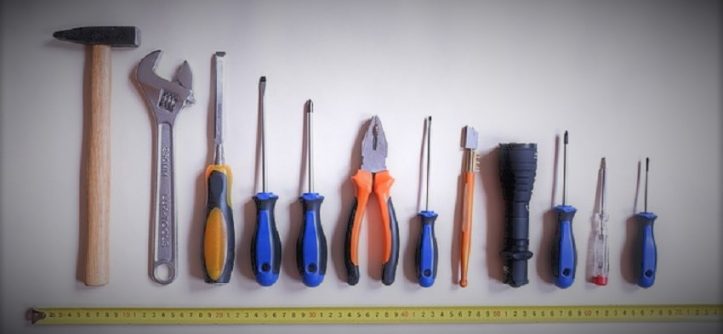If you’re involved in a construction project of any scale, then it’s worth having a core arsenal of tools to hand. These can then be complemented with other, more specialised tools you need for a particular job or trade.
Cordless Drill
Since the lithium-ion battery was first introduced onto construction sites, their impact has been considerable. You get the power to make holes without the hassle and danger or a cable trailing behind you. Ideally, you’ll complement a cordless drill with a cordless impact driver. But, in a pinch, you can substitute one for the other. Look for a hammer-action drill, which will move the bit back and forth as well as round and round.
Obviously, you need a supply of quality drill bits for your cordless drill. Look for bits that are appropriate to the sort of work you’ll be doing. Masonry drills have very different characteristics to the ones you use for timber.
Cordless Circular Saw
This is a tool that’s incredibly versatile, and great for performing rip cuts and cross cuts alike. You can think of it as a mobile version of a table saw – except instead of moving the workpiece into the blade, you’re moving the blade across the workpiece. Bear in mind when you’re using a circular saw that your safety is paramount. Watch out for kickback, and make sure that you have both hands on the device throughout the cut.
Obviously, if you’re going to be using battery-powered tools, then you need a power source that’s reliable. Keep a pair of batteries charging constantly, and make sure that they’re being regularly rotated.
Reciprocating Saw
This is a kind of power tool that’s often used in demolition. Rather than moving continuously around and around, it’ll move back and forth (which is sort of what ‘reciprocate’ means). It’ll make quick work of stud walls, but it can also be brought to bear on other things, too.
Shop Vac
Getting the site clean and tidy is essential. A quality shop vac can deal with things like plaster and brick dust. Many of the best ones also come with attachments that will interface directly with your tools, so that they can suck up debris as it’s being created.
Storage
Whatever kind of work you’re doing, you need a means of storing and carrying your tools. If you skimp on storage, then you’ll end up paying more in the long run when your tools begin to deteriorate. A quality tool storage box or chest can sit in a garage, or in the back of a van. It’ll reduce the risk of theft, provided that it’s secured in place and kept under lock and key.




